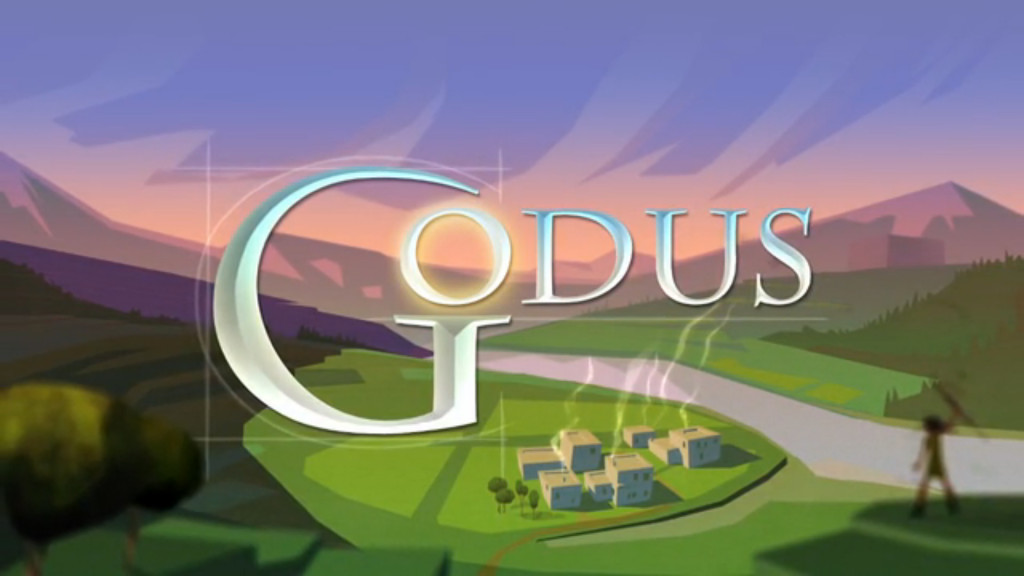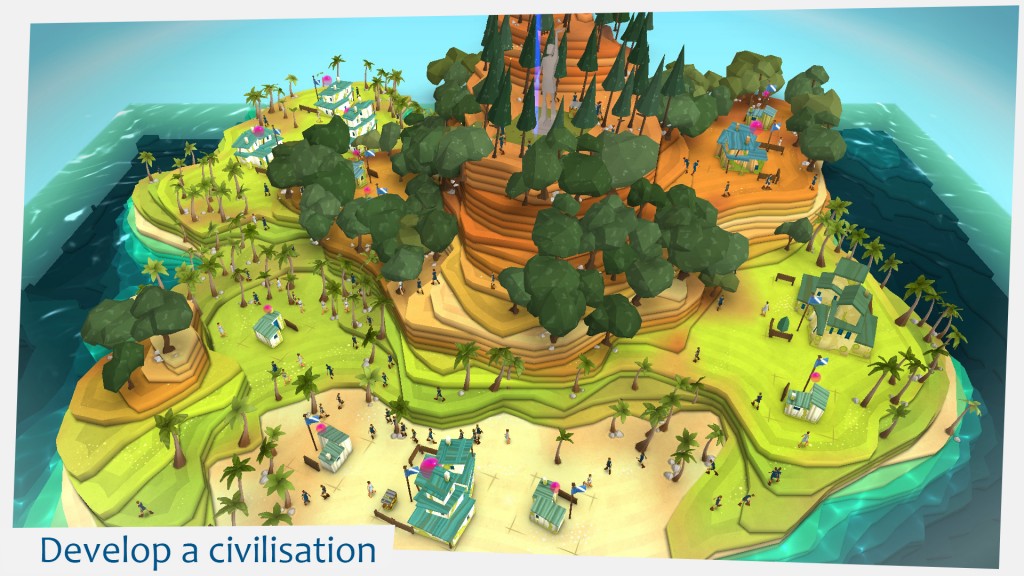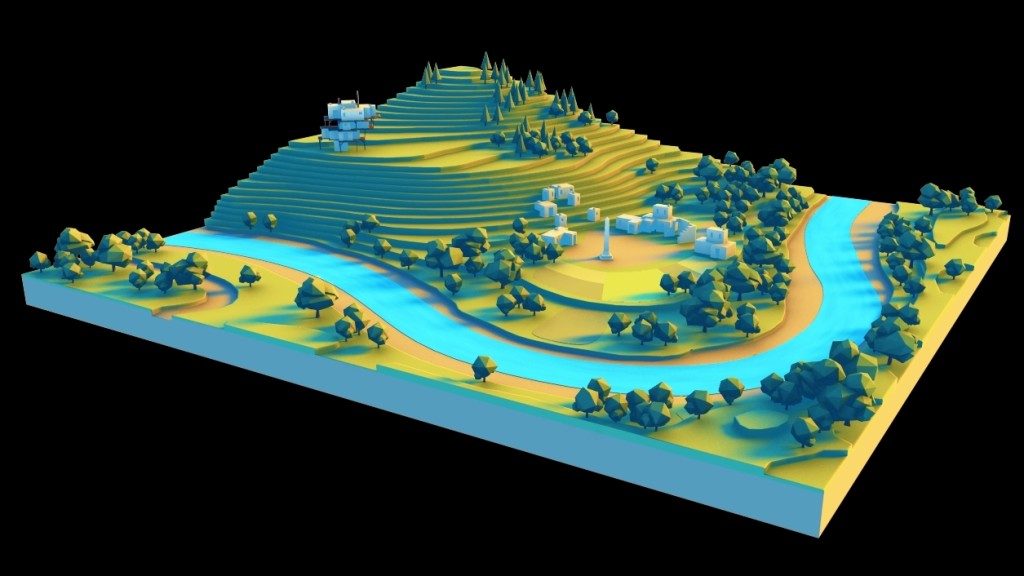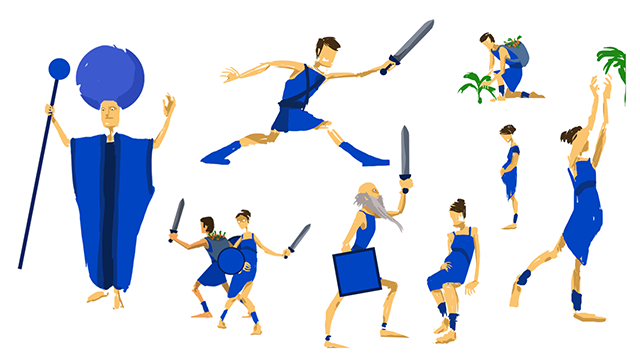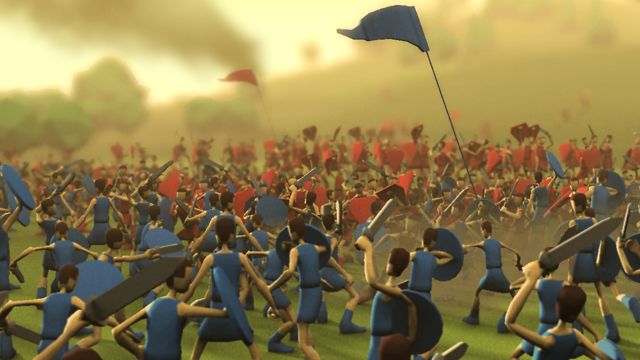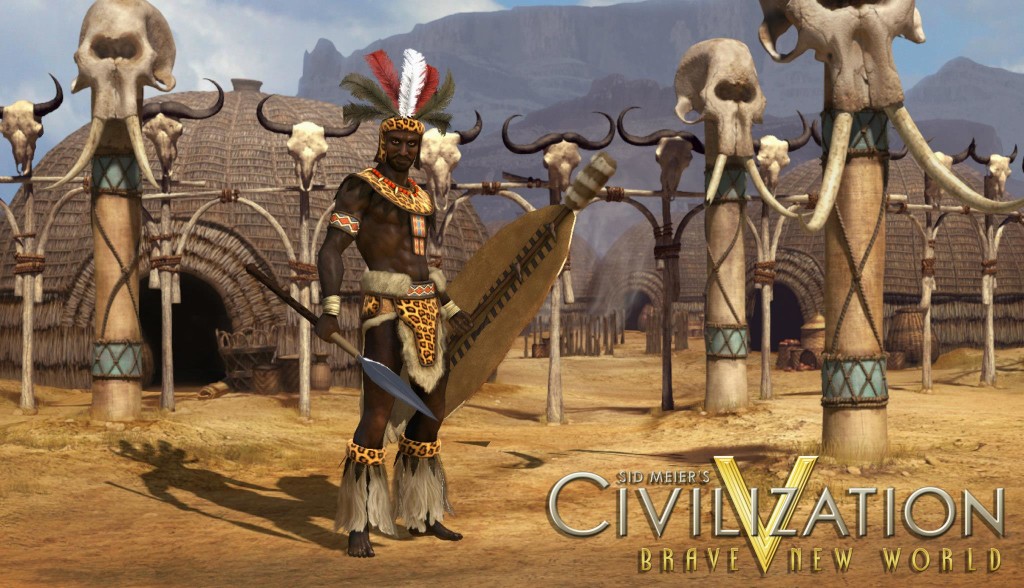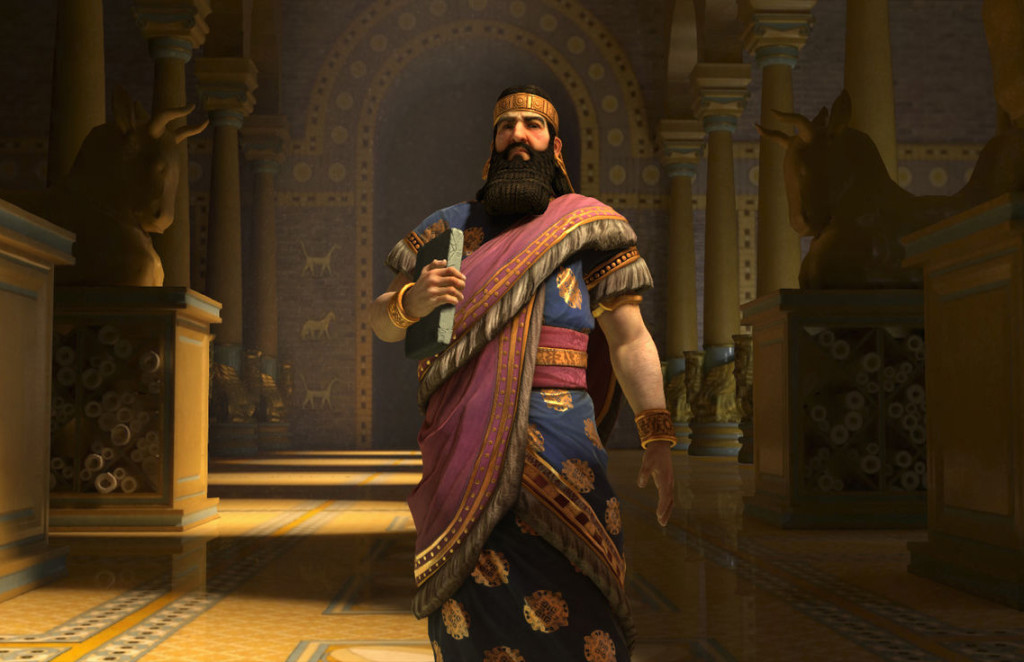-
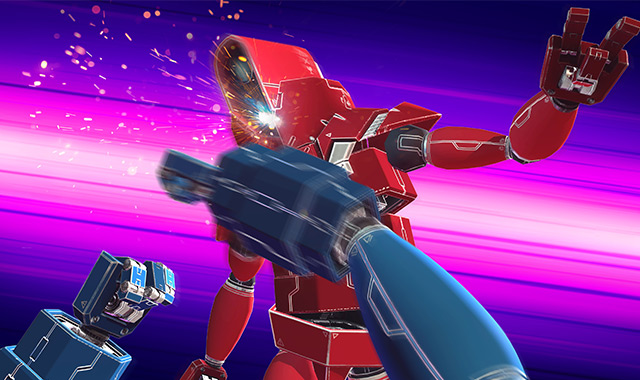
-

-

-

-

-

-

-

-

-

-
-

-
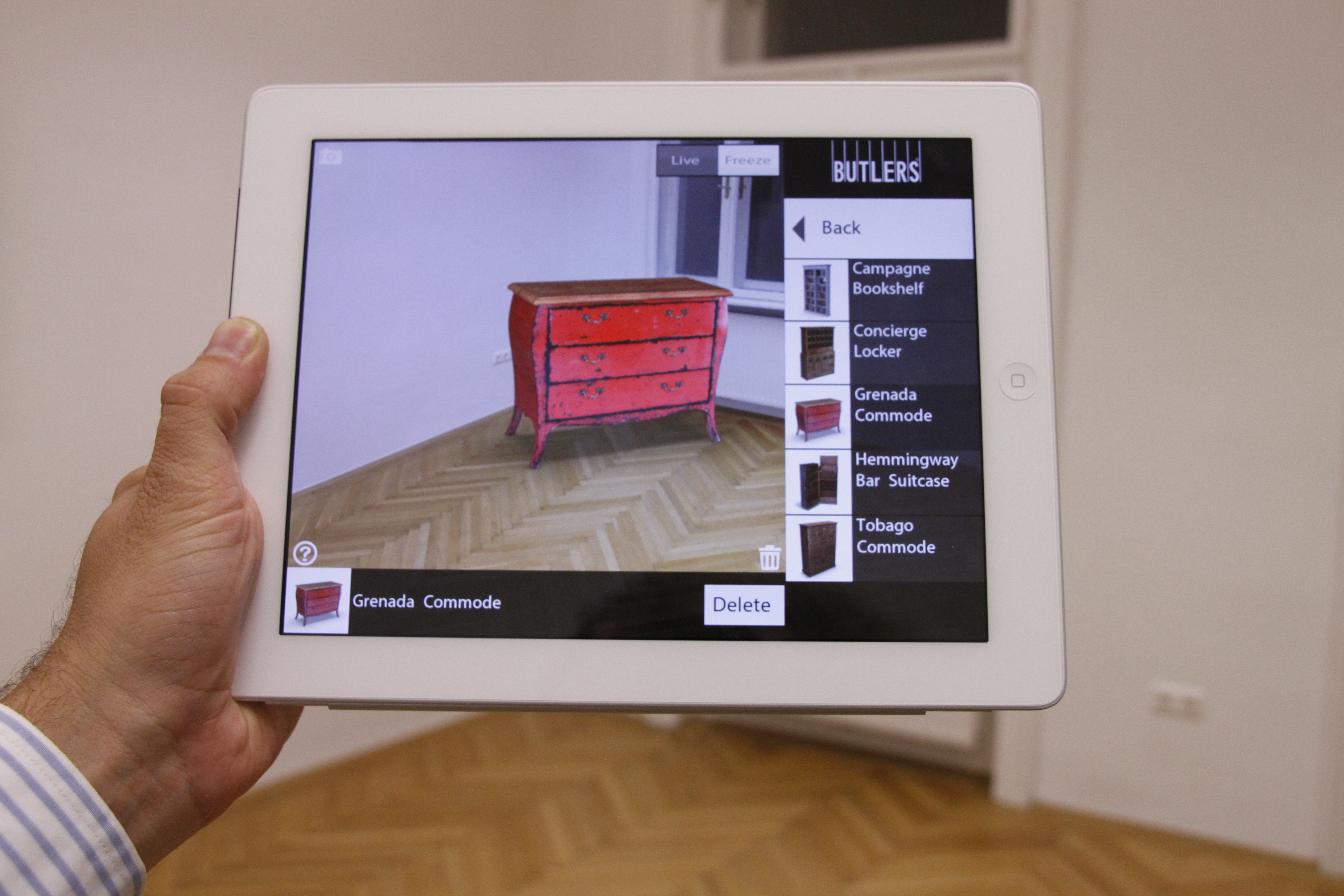
-

-
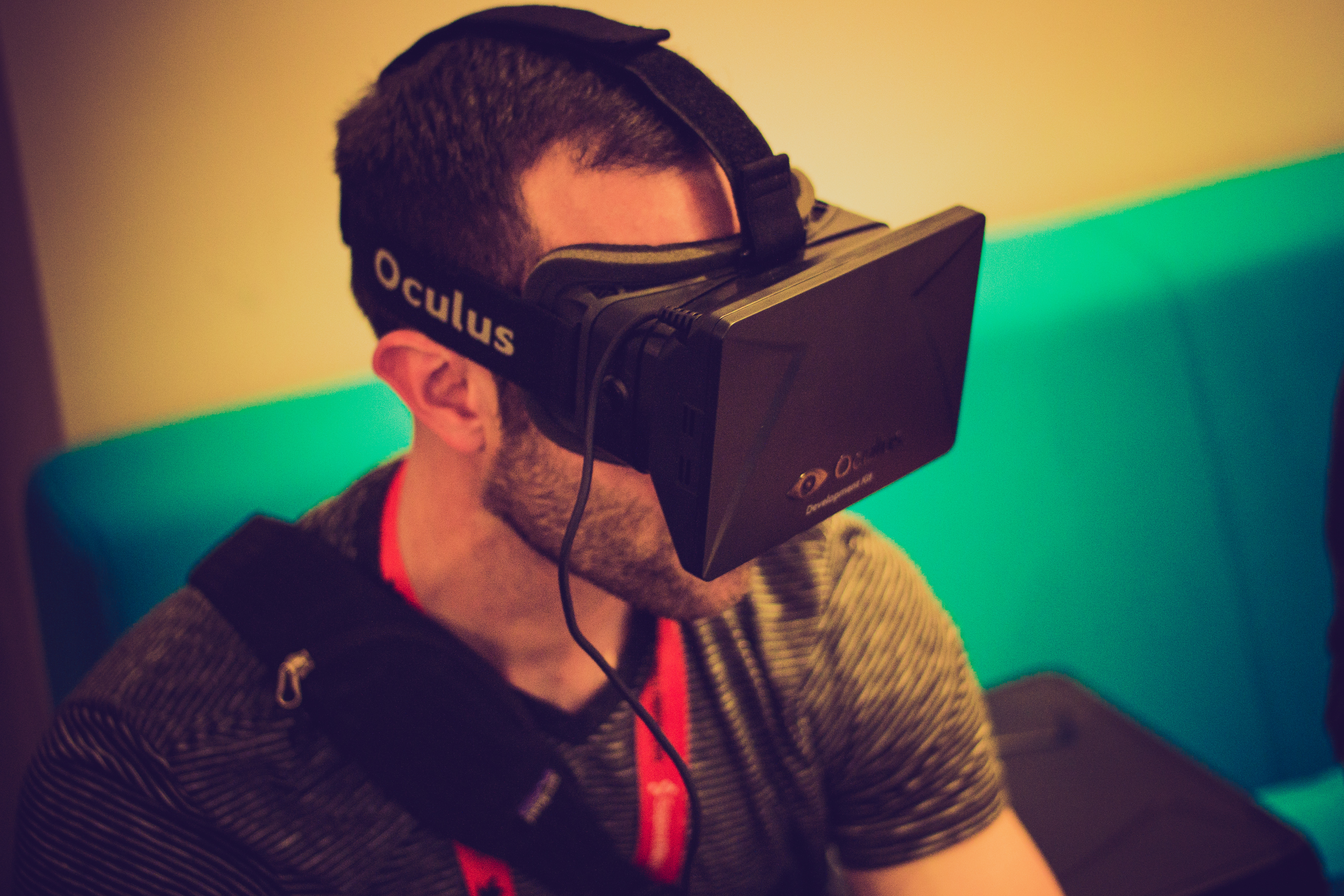
-

-

-

-
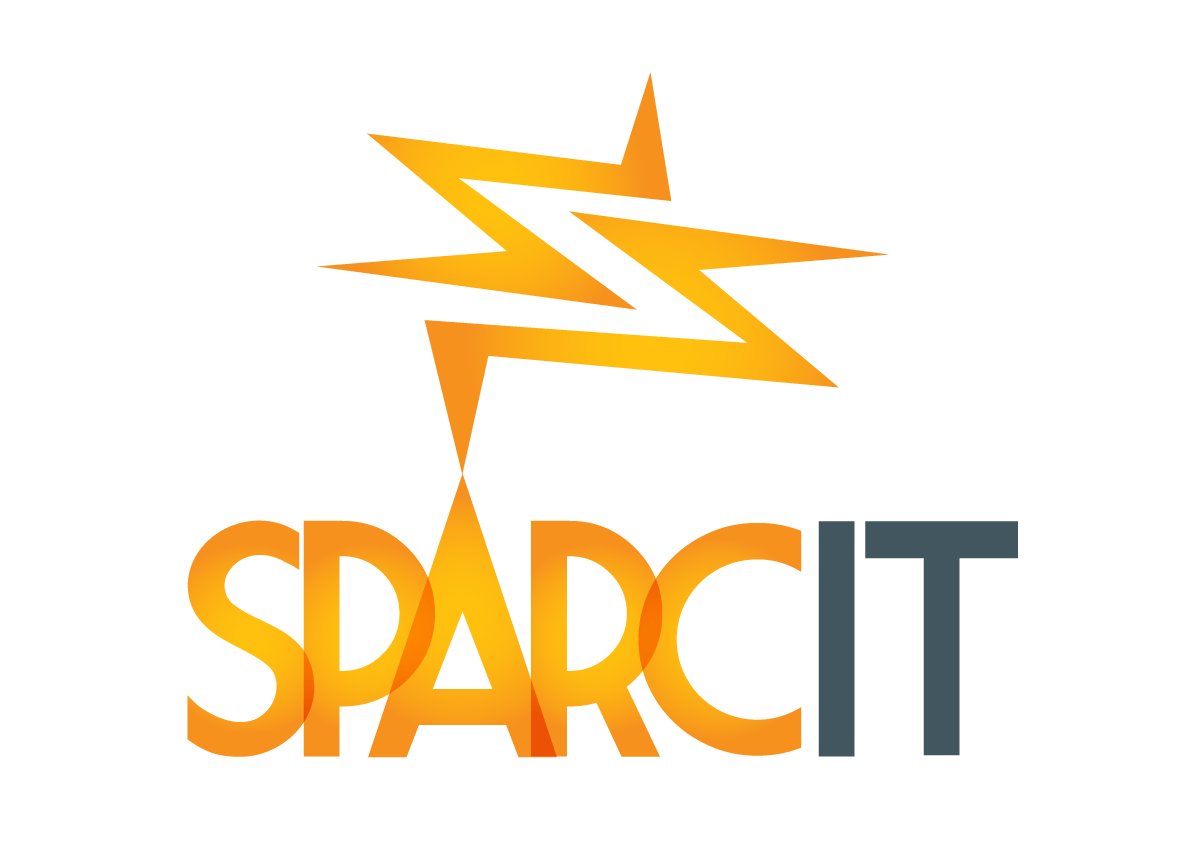
-

-

-

-

-

-

-

-

-

-

-

-

-
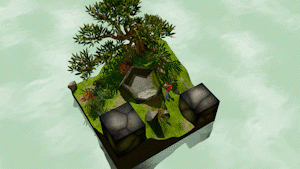
-

-

-
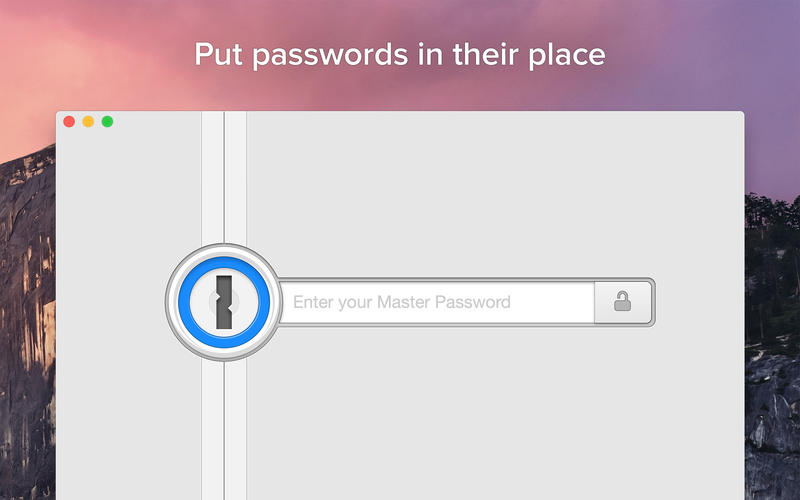
-
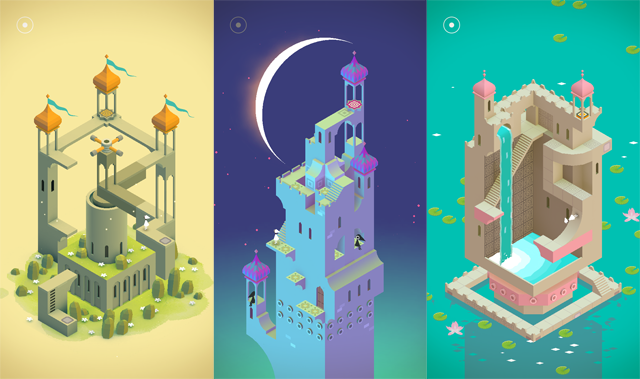
-

-

-

-

-
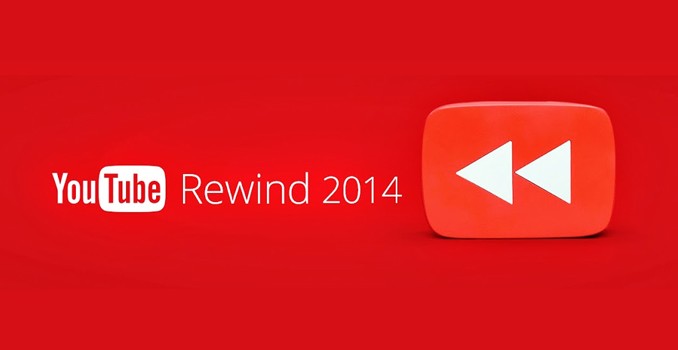
-
-

-

-
 TOTW: Google's Project Ara Modular Phone May Be The Future Of SmartphonesOctober 30, 2014
TOTW: Google's Project Ara Modular Phone May Be The Future Of SmartphonesOctober 30, 2014 -

-

-

-
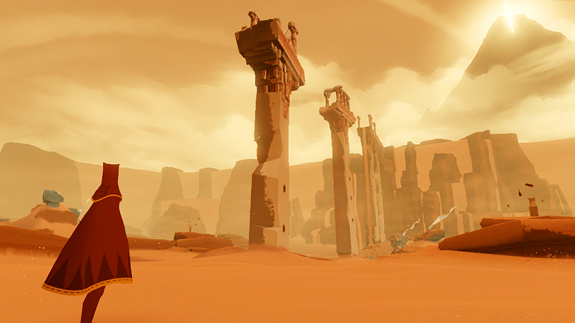
-

-
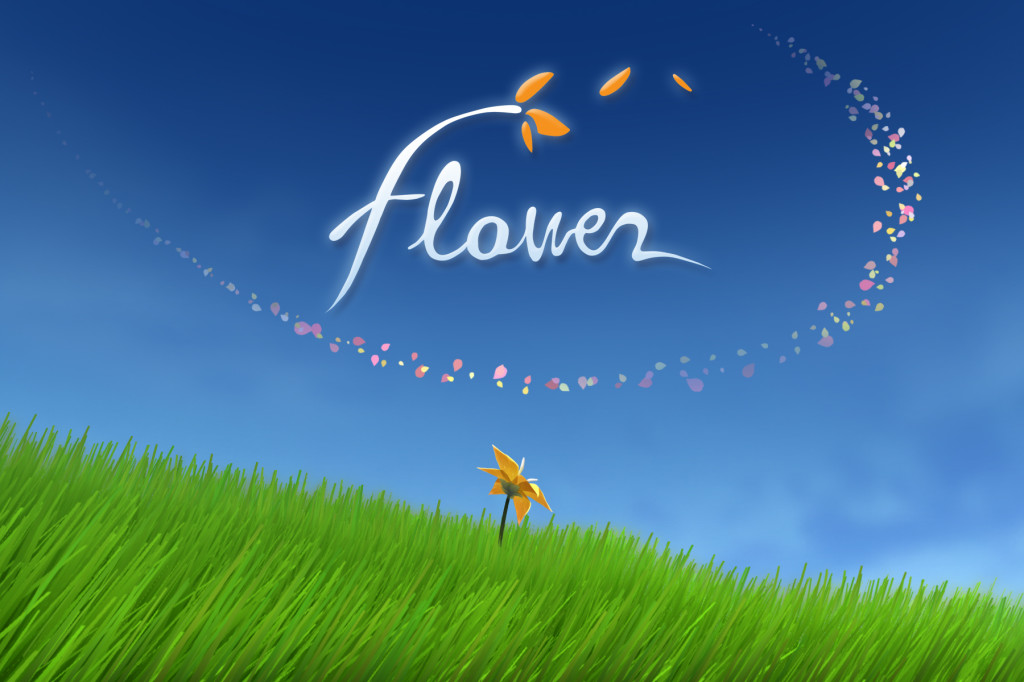
-
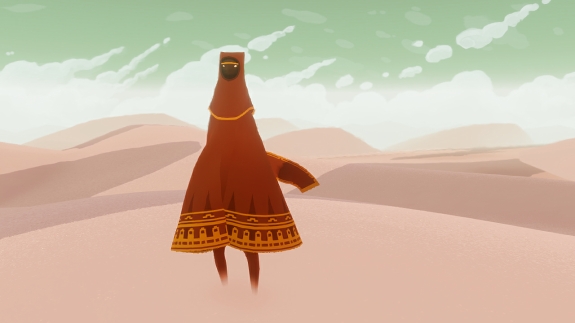
-
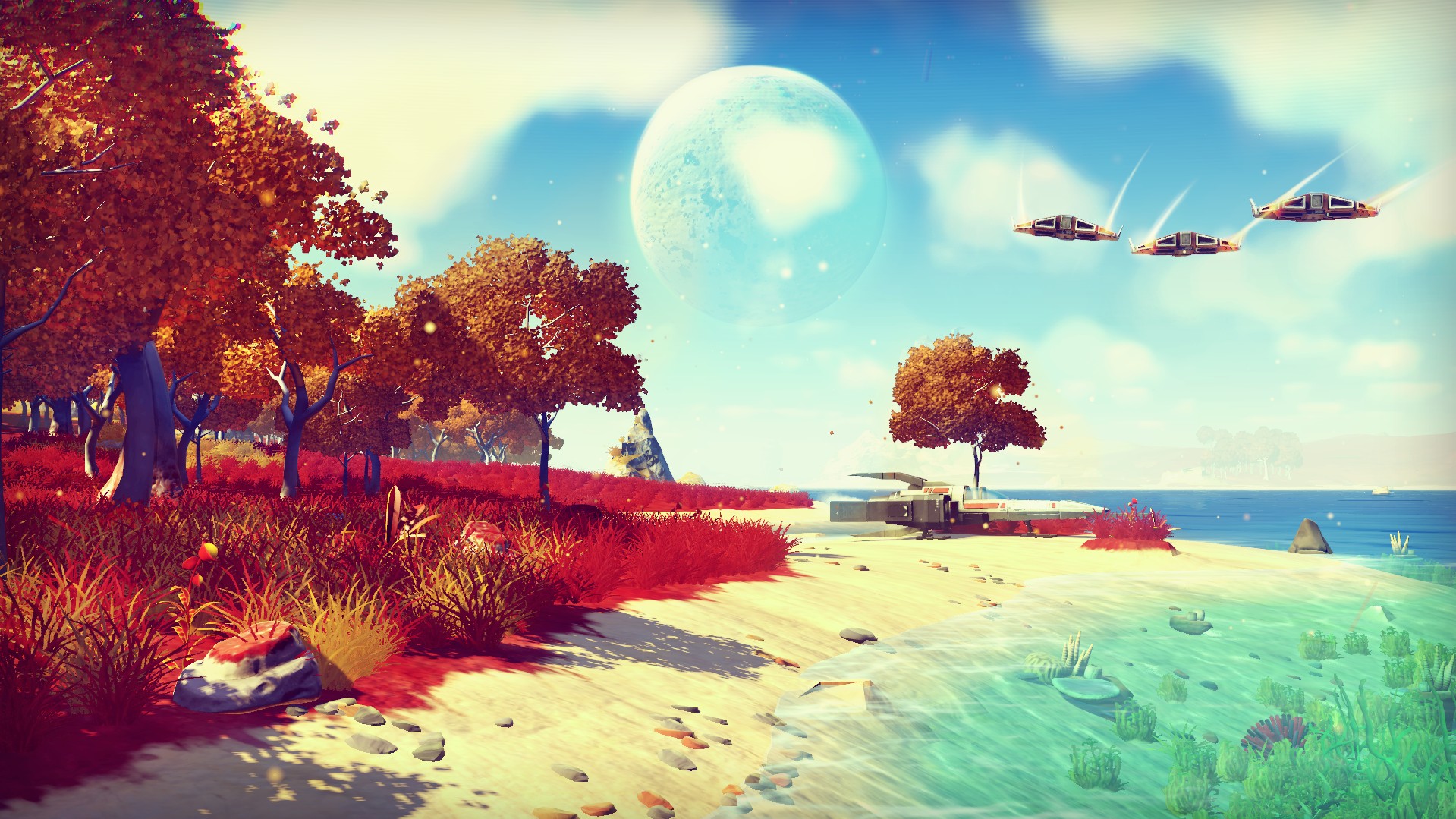
-

-

-

-
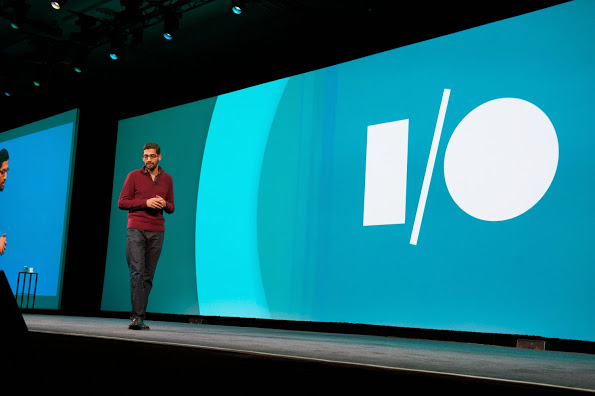
-

-

-
-
-
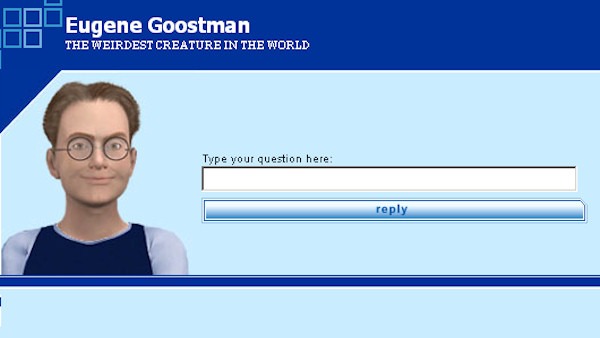
-

-

-

-

-

-

-
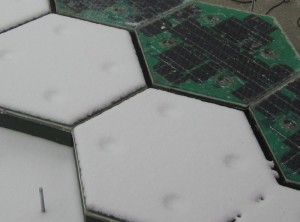
-

Posts tagged Steam
TOTW: Godus, The Ultimate God Game
0Ever wonder what it would like to a god, if there even is one? What it would be like to move mountains, shape rivers, influence civilization, kill peasants, build houses and discover new land? Maybe not, but wouldn’t it be cool? Well, Peter Molyneux and 22Cans answered that little voice in the back of your mind saying “yes!” Not literally, but Godus, their new Beta game, puts you in that role. You can do everything that I so nicely put in the list above, and more.
Godus is Minecraft-style game, but very different in it’s own great ways. The plot of the game is quite simple. You start in a nice, small island with palm trees. Only two people are on the island are your 2 starting followers. They will be the original ancestors of your whole civilization. Eventually, you will create a pathway of land that will connect your island back to your original homeland. it is lush, green hills and plains with lots of space to build houses and grow you civilization (terrain varies).
The terrain is made up of topographic layers of ground that you, as god, can manipulate to, for instance, make space for housing. To make a house, you have to have a person wander over to a free plot of land. Unfortunately, the people are not under you direct control. Your two little followers are pretty easy to control, considering they get attracted to free plots of land. Once they go to a plot of land, they start building on it. A building takes varying time to build, depending on the size of the plot (30 seconds to 40 minutes). Once that is done, your followers go into the house, in which they produce a child in a certain period of time. If there is a job to be done in the vicinity, a little flag will pop up over the house to show that a person inside is ready, and your can click on him to let him out.
But if you thought letting him out would be free, or even changing the landscape is free, boy are you wrong. That’s what makes the game so diverse. There is this elixir-type thing in the game that you use as money. Getting people and changing the landscape cost money. Building houses, fortunately do not cost money. You get money by periodically clicking on the floating blob of elixir above every house, like people. The bigger the house, the more the money. The only other way to obtain and greedily spend money is chopping down trees and rocks, and buying one time special abilities and statues.
You progress in the game by finding resource cards and shrines. Remember, at the start, you only get a certain amount of land to work with. The rest is cut off in a colorless wall around your territory. You can expand your workable land by two ways. The first is by finding shrine relics and luring people (three at most) to come reestablish the shrine. Once the reestablishment is done, you get a expansion card, which expands your land. The second is by getting a certain amount of people, resulting in you getting either a ability or a expansion card. Each time you hit a population checkpoint, the next one is a little bit farther. That is another one of Godus’ ways of making sure you always have a goal.
Godus is based on the fact that you are shaping a growing civilization. To make the technology grow, and obtain better and better abilities, you have to find resource cards. They are the heart of the game. The sign that a resource card is hidden underneath the ground is that confetti is puffing above the ground. If you remove enough layers, you will hit a chest. Inside the chest, a resource card is hidden. Once you get a certain amount of certain resource cards, you can unlock technology cards such as bigger houses or the calendar.
Godus is a nice mix of a strategy game like Civilization V, and a creative game, like Minecraft. The the way they designed the terrain gives the player a certain amount of power, but not to much so that they can just do whatever they want and have the game become a goalless game like Minecraft, which gets boring after awhile. Godus doesn’t. Godus is still in Beta, so your version will auto-update every time a new update comes out. You can get the Beta version on Steam.
AOTW: Civilization V Brave New World Review
0Finally! After waiting a year since the last update, Civilization V has been updated in the form of a expansion pack, Brave New World. After coming out on July 9th in the US and July 12th everywhere else, I got to play it and I have to say it is worth the money. If you want a more fully-detailed description of the game, go to the preview. The information was correct. Here, I will go over gameplay strategies and other specifics.
Culture
First of all, the Social Policy Tree has been updated to add 2 new trees: Exploration and Aesthetics. Aesthetics provides support to culture-seeking player, with policies such as reducing the culture cost of policies by 15%. But the real way to win a culture victory is Tourism. To get tourism, you have to produce Great Artists, Writers and Musicians. They can be expended to leave Great Works behind. Each of these Great Works are worth 2 Tourism points. But, you have to house these in building such as Museums, Palaces and Wonders. Without a housing, you will be forced to either wait, produce one, or use the Plan B bonus. Trust me, that is frustrating. I had a Golden Age that lasted practically half the game since I didn’t have a house for the Great Artists. Anyway, put your Great People into cities that are already producing culture, producing Great People, producing more culture. It is a vicious cycle. To win a Culture Victory, you just have to have “Influential” (it rates your tourism influence over other civs in levels) Tourism for every other civ. Also, one civ that can help you achieve this is the new Pedro II of Brazil. who gets extra Tourism and culture in Golden Ages, or “Carnivals”.
Diplomacy
The real only change to Diplomacy is the World Congress, but it is a great one. Once one civ has met everyone in the world, the World Congress begins. Whoever triggered is hosts the first sessions. The hosts get reassigned each new age, but with a reward. First, you and the person with the 2nd most delegates get to propose resolution, which are bonuses that get voted on. Delegates are your votes. If you are the host, you automatically get a couple extra delegates. Other ways to get more Delegates are by wonders and other special features, but one way is very important city-state allies. In the 2nd age of the Congress, city-state allies give you an extra vote. So, before the congress, use you money and do all you can to win over city-states. Also, when the time comes to get a new host, use all your delegates. It is crucial. Because later on when it automatically proposes World Leader, which triggers the Diplomatic victory.
War
Not much has been changed in war, for that was what Gods and Kings waas about. But, a civ that strives on war and dominancy was added: Zulu. If war is your goal, Zulu would be a good choice of a civ.
Science
Like war, science was not altered in Brave New World. Only, like G&K, a new civ that is a mix between war and science was introduced: Ashurbanipal. Every time you capture a city as him, you can steal one of their already-researched techs. Very handy.
Overall, Brave New World defiantly did not disappoint. It’s new features, such as Tourism and Trade Routes, which I did not mention but can be read about in the preview, are so adverse and realistic. Every year, Civ gets closer and closer to felling like real life. And if you haven’t bought Civilization V Brave New World, something is really wrong with you and you should buy it and change that.
AOTW: Steam Game Store
0Games have been a part of computers for a long time. Whether it is a strategy, puzzle, RPG or action game, most everyone has their own preferences on which games they like. But when you go to buy the game from a store like GameStop (which wastes time), it can be a hassle (which wastes more time). Steam is one of the many apps that allow you to buy and download games straight from the app (such as Good Old Games and the Apple App Store). This is amazingly helpful, especially for a frequent gamer.

The Steam Logo
One great thing about not having to use a CD is that it frees up space for other disks. Also, if you lose the disk, you’re out of luck. With Steam, you can play the game anytime, and it even makes a sidebar shortcut for Macs. When you launch the Steam app, you can choose between a couple options: Library, where you can browse your games, Store, where you get your games, News, where you can get news about new games, and Community. Community is where people can interact with friends, view their profile and achievements and look at/buy mods for games such as Civilization V. The Community section really gives the app a social media fell that other game stores don’t have.
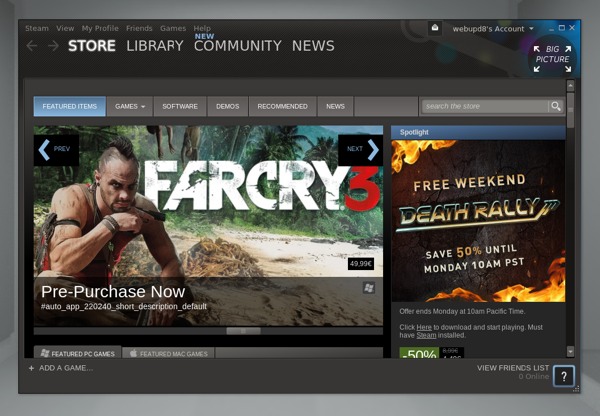
A Screenshot of the Store
Steam is truly a great app. Not only can you easily buy apps and interact with other gamers, but you also save money. Steam frequently have sales on specific games that, sometimes, takes a lot off the already relatively low price. Overall, Steam is a very useful way to download games even if you don’t use the Community section and I highly recommend it.
